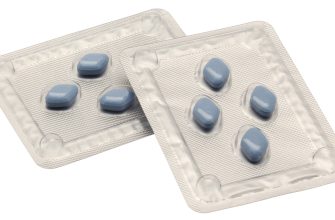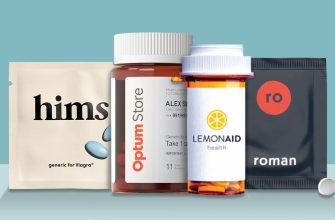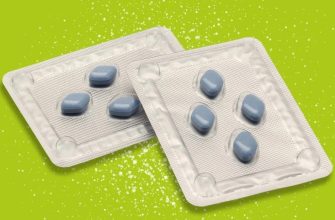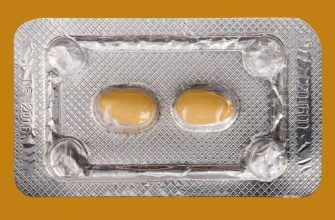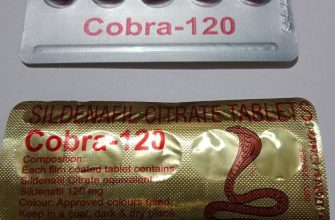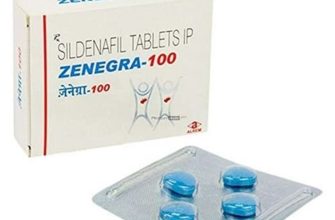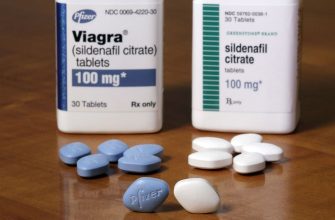For those seeking a reliable solution for erectile dysfunction, sildenafil stands out as a prominent option. This medication, widely known for its efficacy, directly enhances blood flow to the penis, resulting in improved sexual performance. Taking sildenafil, typically about 30 minutes before sexual activity, can significantly increase the chances of achieving and maintaining an erection.
It’s important to consult with a healthcare provider before starting treatment. They can evaluate individual health conditions and recommend the appropriate dosage. Generally, starting doses range from 25 mg to 100 mg, depending on personal response and tolerance.
Potential side effects include headaches, flushing, and digestive discomfort, but these often resolve shortly after use. Staying informed about these effects ensures users manage their expectations while benefiting from sildenafil’s properties. Always remember to discuss any other medications being taken, as interactions can occur.
Incorporating lifestyle changes, such as maintaining a healthy diet and regular exercise, can also support the effectiveness of sildenafil. A holistic approach to health not only enhances overall well-being but can further improve sexual function.
- What is Sildenafil and How Does It Work?
- Indications for Using Sildenafil in Treatment
- Recommended Dosage and Administration of Sildenafil
- Administration Tips
- Special Considerations
- Possible Side Effects of Sildenafil and How to Manage Them
- Interactions Between Sildenafil and Other Medications
- Nitrates
- Alpha-blockers
- Precautions and Contraindications When Using Sildenafil
- Understanding the Difference Between Sildenafil and Other ED Medications
- Mechanism of Action
- Comparative Overview
- Patient Testimonials: Effectiveness of Sildenafil in Real-Life Scenarios
- Frequently Asked Questions About Sildenafil
- What are the common side effects of Sildenafil?
- Can Sildenafil be taken with other medications?
What is Sildenafil and How Does It Work?
Sildenafil is a medication primarily used to treat erectile dysfunction. It enhances blood flow to the penis, enabling an erection when sexual stimulation occurs. The action of sildenafil is quick, often taking effect within 30 minutes to 1 hour after ingestion, and it can last for up to four hours.
The mechanism of sildenafil involves inhibition of the phosphodiesterase type 5 (PDE5) enzyme. By blocking PDE5, sildenafil prevents the breakdown of cyclic guanosine monophosphate (cGMP), a compound that relaxes smooth muscles and dilates blood vessels in the penis. This dilation allows for increased blood flow, facilitating an erection.
| Action | Time to Effect | Duration |
|---|---|---|
| Enhances blood flow | 30 min – 1 hr | Up to 4 hrs |
| Inhibits PDE5 | N/A | N/A |
| Increases cGMP levels | N/A | N/A |
For effective use, sildenafil is recommended to be taken on an empty stomach. High-fat meals may delay its absorption, thereby reducing its effectiveness. It’s essential to consult a healthcare provider to determine the appropriate dosage and ensure it’s safe based on individual health conditions.
Indications for Using Sildenafil in Treatment
Sildenafil is primarily indicated for the treatment of erectile dysfunction (ED). It improves blood flow to the penis, facilitating an erection in response to sexual stimulation. Patients should follow the prescribed dosage, typically taken about 30 minutes to 1 hour before sexual activity.
In addition to ED, sildenafil is also used to manage pulmonary arterial hypertension (PAH). It works by relaxing blood vessels in the lungs, allowing for easier blood flow and reducing the workload on the heart. For PAH, the medication is taken three times daily, with consistent timing encouraged to maintain stable levels in the body.
It is advisable for patients to consult with healthcare providers to determine the appropriateness of sildenafil based on individual health conditions. Those with certain medical histories, particularly relating to heart problems or those taking nitrates, should approach use with caution.
Monitoring for side effects, such as headaches, flushing, or digestive issues, is important. If side effects are severe or persistent, reaching out to a healthcare professional is recommended.
This medication may also be explored off-label for other conditions, such as Raynaud’s phenomenon and altitude sickness, although such uses should always be guided by a physician’s assessment and recommendation.
Recommended Dosage and Administration of Sildenafil
The typical starting dose of sildenafil for erectile dysfunction is 50 mg, taken approximately one hour before sexual activity. Depending on individual effectiveness and tolerance, this dose may be adjusted to 25 mg or increased to 100 mg, but it should not exceed one dose per day.
Administration Tips
Sildenafil can be taken with or without food, but a high-fat meal may delay its onset of action. Swallow the tablet whole with water, and avoid splitting or chewing it. For optimal results, allow time for the medication to take effect; sexual stimulation is necessary for the drug to work.
Special Considerations
Individuals with certain health conditions, such as heart problems, liver or kidney issues, or those taking nitrates, must consult a healthcare provider before using sildenafil. Always follow the guidance of a healthcare professional regarding dosage adjustments based on personal health factors.
Possible Side Effects of Sildenafil and How to Manage Them
Monitor your reactions after taking sildenafil. Common side effects include headaches, flushing, upset stomach, and nasal congestion. If you experience these, consider the following tips:
- Headaches: Stay hydrated and take over-the-counter pain relievers like ibuprofen or acetaminophen if necessary.
- Flushing: Avoid warm environments, spicy foods, and alcohol to reduce this effect. Applying a cold pack to your face may help.
- Upset stomach: Take sildenafil with food to lessen gastrointestinal disturbances. Opt for light meals and avoid heavy or greasy foods beforehand.
- Nasal congestion: Decongestants or saline nasal sprays can relieve nasal blockage. Breathing in steam also helps clear nasal passages.
Watch for more serious side effects, including vision changes or hearing loss. If these occur, cease use and seek medical attention immediately:
- Vision changes: Report any sudden changes to your eye care professional.
- Hearing loss: Notify your doctor if you experience sudden hearing changes or ringing in the ears.
Keep track of any pre-existing conditions and medications, as these can influence how sildenafil affects you. Always consult with your healthcare provider if you have concerns. Adjust dosage or explore alternatives as needed to ensure your safety and comfort while using this medication.
Interactions Between Sildenafil and Other Medications
Sildenafil may interact with several medications, leading to either reduced effectiveness or increased risk of side effects. Always consult a healthcare provider before combining treatments.
Nitrates
Using sildenafil with nitrates, commonly prescribed for chest pain, can cause a significant drop in blood pressure. This combination can lead to dizziness, fainting, or even heart-related issues. Avoid taking sildenafil within 24 hours of nitrate use.
Alpha-blockers
Alpha-blockers, used to treat high blood pressure and prostate conditions, can also lower blood pressure when combined with sildenafil. Monitor blood pressure closely and consult your doctor if you are prescribed both medications. Adjustments may be necessary for safe use.
Other medications, such as certain antifungals and antibiotics, can affect how sildenafil is metabolized. Always inform your healthcare provider about all prescriptions, over-the-counter drugs, and supplements you are taking to prevent unwanted interactions and ensure effective treatment.
Precautions and Contraindications When Using Sildenafil
Consult with your healthcare provider before starting sildenafil, especially if you have a history of heart problems, such as angina, heart failure, or a recent heart attack. This medication can affect blood flow, and conditions such as high or low blood pressure may lead to complications.
Avoid sildenafil if you are taking nitrates for chest pain. The combination can cause a dangerous drop in blood pressure. Inform your doctor about all medications you are currently using, including recreational drugs.
Those with severe liver or kidney issues should also proceed with caution, as sildenafil may not be appropriate. Your healthcare provider may adjust the dosage based on your liver and kidney function.
If you have a history of eye conditions, particularly retinitis pigmentosa, or if you experience sudden vision loss, it’s essential to discuss this risk with your doctor. Immediate medical attention is necessary if you experience sudden hearing loss or ringing in the ears after taking sildenafil.
Pregnant or breastfeeding individuals should consult a healthcare professional, as the effects on unborn or nursing children have not been thoroughly studied.
Do not use sildenafil if you are allergic to it or any of its components. Signs of an allergic reaction include rash, itching, swelling, or trouble breathing. Seek medical attention if any of these symptoms occur.
Always follow the prescribed dosage and guidelines. Taking more than the recommended amount can increase the risk of side effects, including priapism, a painful and prolonged erection that requires immediate medical intervention.
Understanding the Difference Between Sildenafil and Other ED Medications
Sildenafil, the active component in Viagra, stands out in the treatment of erectile dysfunction (ED) due to its unique mechanism and specific characteristics. While other medications exist, knowing the differences helps in choosing the right treatment.
Mechanism of Action
Sildenafil works as a phosphodiesterase type 5 (PDE5) inhibitor. It enhances blood flow to the penis by preventing the breakdown of cyclic guanosine monophosphate (cGMP), which relaxes the smooth muscle lining the blood vessels. Other ED medications, such as tadalafil (Cialis) and vardenafil (Levitra), also inhibit PDE5 but differ in duration of action and how quickly they take effect.
Comparative Overview
| Medication | Onset of Action | Duration | Food Interaction |
|---|---|---|---|
| Sildenafil (Viagra) | 30-60 minutes | 4-6 hours | High-fat meals can delay absorption |
| Tadalafil (Cialis) | 30 minutes | 24-36 hours | Less affected by food |
| Vardenafil (Levitra) | 25-60 minutes | 4-5 hours | High-fat meals can delay absorption |
Selecting sildenafil over other options often relates to your lifestyle and preferences. If immediate spontaneity is key, tadalafil may be preferable because of its extended duration. Always consider consulting with a healthcare provider to tailor the approach to individual needs.
Patient Testimonials: Effectiveness of Sildenafil in Real-Life Scenarios
Many patients have shared remarkable experiences after using sildenafil. Here are some specific accounts demonstrating its positive impact on their lives:
-
Mark, 53: “After struggling with erectile dysfunction for over two years, I decided to try sildenafil. Within 30 minutes of taking the pill, I noticed a significant change. It felt like I was back in my twenties. My partner was thrilled, and our intimacy improved tremendously.”
-
Lena, 45: “Sildenafil transformed my outlook on relationships. I felt embarrassed discussing my issues with my partner. Once we tried sildenafil together, it opened up a new level of communication for us. The results were immediate and satisfying.”
-
Tom, 40: “I was skeptical at first, but the efficacy of sildenafil amazed me. I took it an hour before the planned activity, and it worked as promised. I regained my confidence and felt comfortable being intimate again.”
-
Emily, 50: “Sildenafil improved not just my sexual health but also my emotional connection with my husband. It took us out of the routine and added excitement back into our relationship. We both feel much happier now.”
Patients consistently report a boost in confidence and improved relationships following the use of sildenafil. Many recommend starting with a doctor’s consultation to determine the right dosage. The general feedback highlights an easy-to-use solution that enhances quality of life significantly.
- Consult with your healthcare provider for personalized advice.
- Communicate openly with your partner about experiences and expectations.
- Consider lifestyle factors such as diet and exercise, which can support overall performance.
This medication has proven beneficial for those experiencing erectile dysfunction, enhancing both physical and emotional intimacy. The collective testimonials underline an encouraging trend for many who seek a reliable solution.
Frequently Asked Questions About Sildenafil
Sildenafil works by increasing blood flow to the penis, helping men achieve and maintain an erection. It’s commonly prescribed for erectile dysfunction (ED) and sometimes for pulmonary arterial hypertension. Dosage typically starts at 50 mg taken about an hour before sexual activity. Depending on the individual response and tolerance, the dose can be adjusted to 25 mg or increased to 100 mg.
What are the common side effects of Sildenafil?
Common side effects include headaches, flushing, indigestion, nasal congestion, and dizziness. These often subside within a few hours. If side effects persist or worsen, contact a healthcare provider for advice.
Can Sildenafil be taken with other medications?
Avoid taking Sildenafil with nitrates, which are often used for chest pain, as this combination can lead to a dangerous drop in blood pressure. Consult your doctor about all medications you are using to ensure safety and effectiveness.


